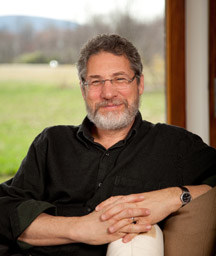 Jonathan F.P. Rose’s business, public policy and not-for-profit work all focus on creating more environmentally, socially and economically resilient cities. In 1989, Mr. Rose founded Jonathan Rose Companies LLC, a multi-disciplinary real estate development, planning, and investment firm, which has successfully completed more than $1.8 billion of work.
Jonathan F.P. Rose’s business, public policy and not-for-profit work all focus on creating more environmentally, socially and economically resilient cities. In 1989, Mr. Rose founded Jonathan Rose Companies LLC, a multi-disciplinary real estate development, planning, and investment firm, which has successfully completed more than $1.8 billion of work.
The company’s mission is to develop communities that enhance opportunity for all. The firm’s work touches many aspects of community health; working with cities and not-for-profits to build affordable and mixed-income housing, cultural, health and educational infrastructure, and advocates for neighborhoods to be enriched with parks and open space, mass transit, jobs and healthy food.
Mr. Rose’s book on how to create resilient cities that will best adapt to the volatility and uncertainty of the 21st century, The Well Tempered City: What Modern Science, Ancient Civilizations and Human Behavior Teach us About the Future of Urban Life, was published by Harper Wave in 2016.
Cities Are Back in Style
There has been a cycle of appreciation of cities. They were deeply appreciated as America urbanized—from really the late 1880s until about the 1950s—and then we had the great suburban movement, people thought less and less of cities. But my sense is that they have been coming back…we now recognize that they are the centers of our civilizations. They are the cause of many of our problems, but they are also the nexus points upon which we can solve most of our problems.
We Need Social Cohesion to Overcome Our Challenges
When you look throughout history, when there is a combination of climate change, resource depletion, and enormous income inequality, civilizations fall apart, and we see collapse. And when there’s a lot of social cohesion, then civilizations are able to overcome some of the stresses they’re facing. And so these issues are all interrelated, and as much as we need behavior changes and energy-systems changes, and a lot of technological and certainly infrastructure changes to deal with climate change, at the root we also need to create a more equitable social system to accomplish them.
The Well-Tempered City: Music, Math and Cities that Work
The book is called The Well-Tempered City, and it’s based on the idea of temperament, which is a musical idea…the idea of temperament is another mathematical set of formulas that looked at how could you tune the notes a little bit in between—not perfectly, but so that the compromise between them all was very pleasant but it allowed you complete integration across scales…temperament, in which you can create vast integration, to me, is exactly what we need in our cities. It’s what we need in our public policy, it’s what we need in our budgets, and it’s what we need in our rules and regulations.
The Power of Civic Engagement
If we look a lot of the great city and regional plans that have been done, they have been done by volunteers. For example, the great Plan of Chicago, which shaped Chicago’s growth for the next hundred years, was done by a bunch of volunteers…A group of engaged citizens really can make a huge difference. What we deeply advocate for is that they first start on setting out a vision, because when there is a large vision of “What is wellbeing, what is the great city, what is the great society that we want to aim for?” it gives cohesion, it gives everybody a sense of direction as to where they’re going.
Download full transcript (PDF): Jonathan Rose on The Infra Blog
Tags: Bach, Envision Utah, Jonathan F.P. Rose, Jonathan Rose, Jonathan Rose Companies, music, The Well-Tempered City






 RSS Feed
RSS Feed